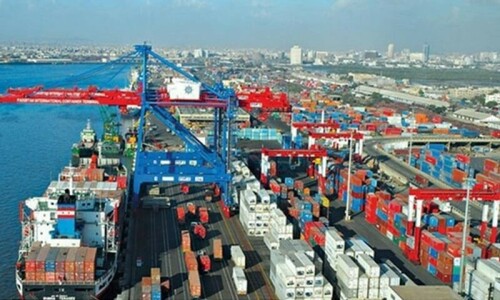GIVEN the relationship of politics with the ideas of power, resources and competition, it is no wonder that humans have practised and enjoyed politics as a game. Simply put, politics has become, at both national and international levels, something like video games.
There are certain design elements that make video games interesting and addictive. The first element is conflict; between good and evil, heroes and villains, us and them. The second element is objectives; each game has targets, goals, objectives and ambitions. The third element is alliances; players cooperate, form teams and pool resources. The fourth element is rules; players must abide by them and choose their actions within the set constraints. The fifth element, of course, is the use of visual media, which enables complete sensory involvement and provides a personal experience.
These elements are all present when one explores the domain of politics. The countries are primary players; conflicts are bred and managed; geostrategic and ideological objectives are pursued; alliances are formed; a general set of rules is observed; finally, the visual dimension is provided through countless current affairs shows, round-the-clock news cycles and the ubiquitous social media.
The gamification, or abstraction, of politics is not an exclusively recent phenomenon. Politics has always been treated as a game by some insulated sections of the political elite. However, this gamification never permeated through to the masses whose connection with a centralised state was limited, if any, and who lived and operated in hyper-localised political structures where everyone, from chieftains to the lowly serfs, had some skin in the game.
More recently, the gamification has become more pervasive and complete. Think about colonial bureaucrats and technocrats drawing straight lines right through the hearts of the two largest continents; abstracting and dissolving the lives, histories, identities and families of millions of colonial subjects. It is mainly because of the arrival of the Westphalian nation state, and the historical, geographical and geostrategic imperatives it breeds. Other modern currents, like mass media, globalisation, international mercantilism and social media, have also accelerated this trend.
The nation states are not humans, but just a transient geographical reality born of a loosely defined citizenship agreement. Nevertheless, the political elite strut about representing the will of their countries, which not only have names, but also opinions and personalities.
Pakistan is ‘troublesome’, United States is ‘harbinger of freedom’, and France is a ‘flag-bearer of liberty’. People all over the world subscribe to these imaginary symbols they call countries and vicariously engage in a well-produced political drama. The media and the political elite are all too happy drumming up this theatre using slogans of patriotism, national unity, national greatness, or false binaries between liberalism and conservatism, the West and the rest, Islam and the ‘Judeo-Christian values’, etc.
Some may argue that this abstraction is necessary to bring order to a complicated and messy world. That may indeed be true. One cannot possibly argue that international relations, foreign and security policies of countries or the national politics within each nation are unnecessary or redundant.
However, careful attention needs to be paid to how this abstraction is divorced from the reality and political aspirations of the majority of global population. It also dehumanises people, caters to their worst instincts, and makes them irrelevant to the process of decision-making.
While the well-provisioned intelligentsia may enjoy this international circus on full display, it cannot substantively replace the people’s politics: the politics of service-provision, shaking hands, talking, listening, resolving local issues, articulating people’s hopes and shaping their dreams. For politics to truly take a turn for the good, and to fully serve its actual mission, a truly global people’s movement is necessary. We must put an end to the choreographed, televised and broadcast drama mediated by the whim, interests and personas of the elite. Instead, we should hold them accountable for their actions.
Zulqarnain Haider
Florida, USA
Published in Dawn, August 6th, 2021














































Dear visitor, the comments section is undergoing an overhaul and will return soon.